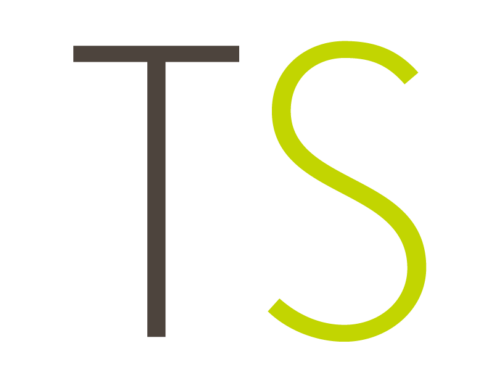Do you have questions regarding insurance and whether you may have cover under an existing policy for a particular set of circumstances relating to Coronavirus?
Sarah Emerson, Partner at Teacher Stern, spoke to Tom Inchley, at LexisNexis, about insurance with a focus on insureds, during this uncertain time.
Could you give us a brief introduction to the types of insurance that could be affected by the international coronavirus outbreak? Have insurers learned lessons from earlier infectious disease outbreaks?
Almost all categories of insurance will be affected by the coronavirus pandemic. Below are some types of insurance that I have recently been asked about by clients.
Cyber Insurance—there will be a huge increase in people working from home with reliance on technology to do their work and keep businesses running. Cyber and related insurers may have increased exposure to losses in the event of IT failures or if interruption to network access increases. Further, we have seen in the past that cyber criminals often take the opportunity to ‘strike’ when a company is facing other challenges to its business. Furthermore, data security risk increases for businesses implementing contingency plans and is heightened where employees are accessing systems from home.
Supply chain/business interruption—some losses and risks arising out of this pandemic will be insured, but many more will not. Insureds will face policy coverage and aggregation issues with their insurers. Supply chain issues may prevent businesses from honouring their own contracts and force majeure clauses in commercial contracts will need examining to see if they offer a business the appropriate protection—ie do the current coronavirus circumstances fall within the contract terms?
Construction (professional indemnity) insurance—self isolation, extensive interruption to services and issues arising from supply chain disruption present problems for the construction industry. Staff undertaking work that might not usually fall within their day to day roles or working under pressure due to staff shortages may require those in the construction industry to refer to their professional indemnity policies if mistakes are made in these difficult times, particularly since the Grenfell Tower fire which has caused the construction insurance market to face significant challenges of late.
To answer the second part of the question, have insurers learned lessons from previous disease outbreaks? The answer is yes and very much to the detriment of businesses and individual insureds. Over the years, and particularly after incidents, such as the London Riots in 2011, the devastating fire at Grenfell Tower in 2018, and previous infectious disease outbreaks such as SARS, we have seen insurers revisit their policy wording and insert exclusions in their policies to protect them from mass claims in the future. Of particular relevance here are epidemic and communicable disease exclusions that insureds have had added to their policies by insurers following SARS and Ebola outbreaks.
Event cancellation insurance is one of the areas many expect to receive the most losses from the coronavirus outbreak, especially given the approaching 2020 Tokyo Olympics and other high-profile events.
Event cancellation insurance is a contingency insurance that usually operates to cover a defined set of occurrences relating to a scheduled event such as cancellation, abandonment or postponement, on an all risks basis. However, many of these policies include exclusions for infectious diseases and often refer to other outbreaks such as Avian Flu or SARs. It is highly likely we will now see coronavirus added to the list of diseases excluded under many of these policies.
Determination of insurance cover in a situation where a business finds itself needing to cancel an event will require careful analysis of the event insurance policy wording. The burden of proof will be on insurers to show that any loss is excluded by reference to the exclusions section of the policy wording. Some organisations may have additional cover, which is brought back in under their policy through a ‘buy back’ provision. This could assist an organisation in situations where the government has imposed restrictions causing the event not to go ahead, and so a careful review of the policy is advisable.
Will business interruption insurance respond to coronavirus, especially given that many such policies only pay out if physical damage occurs?
It is inevitable many organisations will suffer from loss of revenue and loss of profit as a result of the pandemic and this will cause them to look to their business interruption insurance.
Traditional business interruption (BI) insurance provides a narrow type of cover against an insured’s lost or reduced earnings resulting from (usually) certain types of property damage following a suspension of its business activity.
The cover is, in effect, an add on and is designed to restore an insured to the position it would have been in but for the insured peril occurring (fire, flood etc).
Contingent business interruption (CBI) cover may extend coverage to a loss of income related to the impacts to the property of the insured’s suppliers or providers, but often the same underlying physical damage requirement applies.
In the context of coronavirus, the requirement for physical loss or damage will create difficulties since coverage is designed with physical damage or contamination of physical property in mind, or that of the insured’s customer or supplier in the case of CBI.
BI cover in the current coronavirus pandemic is complex. The actual peril giving rise to a loss must be carefully identified. It is conceivable that a large number of losses may be caused by pre-emptive or preventative measures, or by those decisions taken to protect a community—eg social distancing rather than actual contamination of relevant property.
Where access to an insured facility is restricted or prohibited, insurers often reject claims by insureds under a traditionally worded property and business interruption policy. It is likely that loss of use has not occurred within the scope of cover in the absence of physical loss or damage. These were circumstances faced by a number of businesses immediately after the terror attack on London Bridge in 2017, where employees could not access offices or restaurants.
Travel disruption is naturally an area that will be affected by the coronavirus outbreak. How do travel insurance policies deal with the concept of infectious disease outbreaks?
Many travel insurance policies do not cover insureds for travel disruption that is caused by the outbreak of an infectious disease, and now that the World Health Organization has declared a pandemic situation, it is likely that many travel insurers will seek to exclude claims arising from coronavirus. However, it is not just the definition of outbreak alone that needs consideration in the context of disrupted global travel—there are number of factors to take into account, including government advice regarding the risk of travel to certain destinations.
If the Foreign & Commonwealth Office (FCO) has advised against travel to a country, then the majority of travel policies will cover a cancelled trip to that country. If a travel destination is not in a country or part of a country where the FCO recommends against travel to it, there may not be comprehensive cover under a travel insurance policy for the insured.
Where flights have been cancelled by an airline, some policies available in the market will cover the cost of hotel cancellations in circumstances where the person travelling is not able to get to their destination.
Moreover, travel insurance is not designed to cover a reluctance or disinclination to travel to a country where the FCO advice has not changed to advise against travel.
For those in the supply chain and/or involved in the transportation of goods, how will their insurance assist them with the coronavirus outbreak?
Cargo insurance generally excludes loss/damage due to delay. Carriers and cargo insurance are also not generally responsible for additional costs incurred as a result of cargo being discharged short of the intended final destination, or delayed in warehouses. Although cargo insurance would normally continue to provide physical loss/damage coverage on the goods.
With respect to the liability of a carrier or logistics service provider, the inability to perform services as a result of coronavirus quarantines will likely be governed by the force majeure provisions included in the contract of carriage with reference to a standard bill of lading or under a custom-made contract.
It is very difficult to estimate how swiftly global logistics providers will return to normal once the pandemic is under control. Insureds would be advised therefore to remain aware of their contractual terms with customers, and act prudently when moving customer goods and deciding cargo prioritisation as quarantines lift or change.
What effect does coronavirus have on employer’s liability insurance?
Employers are required by law to insure against liability for injury or disease to their employees arising out of their employment—it is compulsory insurance under the Employers’ Liability (Compulsory Insurance) Act 1969.
Most employer’s liability policies impose an obligation on insureds to take all reasonable precautions to prevent accidents and disease, and to comply with statutory requirements. This requirement is usually a condition precedent to indemnity under the policy. However, it is not a condition which can be used easily by insurers to deny policy liability. In order to rely on the condition precedent insurers must generally show that the insured has been reckless in failing to take reasonable precautions—ie knowing the consequences of their actions but proceeding with it regardless.
It is difficult to envisage many circumstances in which insurers would be successful in declining employer’s liability to an insured based on the assertion an insured has failed to take precautions to avoid the contraction of coronavirus by their employees—ie that the insured knew their act or omission would cause someone to contract the disease but proceeded with it anyway.
Is there anything else you wish to mention regarding the threat posed by coronavirus to insurance?
As ever with insurance claims, the main take away for insureds is to check the wording of any policy with care. While there are standard wordings in the market, bespoke amendments/clauses are also common and the cover available (whatever the category of insurance) will always be dependent on whether the loss in question falls within the scope of the specific policy wording, while taking into account any applicable exclusions.
Insureds may also find it helpful to be aware that interpretations of policy wordings may differ between jurisdictions, with the same or similar clauses potentially having very different effects.
This article was first published by LexisNexis, to view the original article please click here for the PDF.






